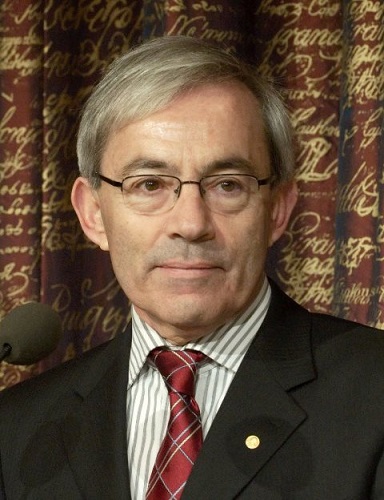Below you will find further information on the case studies submitted by the Department for the Research Impact Framework 2014 as well as on some further case studies.
Research Impact case studies

Professor Oriana Bandiera - Improving the recruitment of health workers in developing countries
Summary of the impact: The recruitment and retention of qualified health workers is one of the most pressing challenges in developing countries today, especially in rural areas. Research by Oriana Bandiera and her colleagues is underpinning a policy implemented by the Ministry of Health in Zambia to recruit and motivate a new cadre of health workers called ‘community health assistants’ (CHAs). The collaboration between the researchers and policy-makers involved three randomised controlled trials to determine effective recruitment and motivation strategies for CHAs. The results of three policy experiments (which were implemented in July 2010, December 2011 and December 2012) are informing recruitment of the 5,000 CHAs who will be hired in Zambia over the next five years.
Read more: Submitted Case Study (pdf) || Summary || Resources
Watch the video: Improving the recruitment of health workers in developing countries
Professor Henrik Kleven - Helping countries improve their tax systems
Summary of the impact: Research at LSE by Henrik Kleven and colleagues has significantly improved the design of tax policy and tax enforcement in countries as different as Pakistan and Denmark. These policy impacts can be summarised as follows:
1. A project by Kleven and Waseem (2013, Quarterly Journal of Economics) became the blueprint for a major income tax reform in Pakistan in July 2012.
2. A project by Kleven and colleagues (2009, Econometrica) led to reform of the tax treatment of married couples in Denmark in 2010.
3. A project by Kleven and colleagues (2011, Econometrica) led to a significant change in the enforcement of capital gains taxation in Denmark in 2010
Read more: Submitted Case Study (pdf) || Summary || Resources
Professor Emeritus Lord Richard Layard - Making personal happiness and wellbeing a goal of public policy
Summary of the impact: The Wellbeing Programme at the LSE’s Centre for Economic Performance (CEP) was founded in 2001, based on the belief that subjective wellbeing should be the main criterion for making government policy. The research programme has had a widespread impact on many UK government policies, including policies for measuring national wellbeing; for Improving Access to Psychological Therapies in the NHS; for improving life skills in schools; and for apprenticeships. CEP research has also had significant impact worldwide, including on the OECD’s measurement programme, the World Economic Forum, and the United Nations (UN) process towards making happiness one of the ‘sustainable development goals’ after 2015.
Read more: Submitted Case Study (pdf) || Summary || Resources
Watch the video: Making personal happiness and wellbeing a goal of public policy
Professor Alan Manning - Designing a minimum wage to reduce poverty and wage inequality
Summary of the impact: Research by Alan Manning and colleagues at LSE’s Centre for Economic Performance (CEP) has contributed to widespread acceptance of the view that minimum wages set at an appropriate level are a valuable tool of public policy. CEP researchers had a direct impact on the design of the UK’s National Minimum Wage (NMW) and thus on the living standards of poorer workers and their families. They provided the intellectual context for the policy, advised on its implementation and evaluated its effects. CEP research has had some initial impact on the introduction of the minimum wage in Hong Kong. It has also influenced debates around the world about the introduction or modification of minimum wages.
Read more: Submitted Case Study (pdf) || Summary || Resources
Watch the video: Designing a minimum wage to reduce poverty and wage inequality

Professor Sir Christopher Pissarides - Creating the lower-skilled jobs vital for EU economic revival
Summary of the impact: Research by Christopher Pissarides and his LSE colleague Rachel Ngai has led to official acceptance by European Union (EU) policy-makers that a major source of new jobs will be sectors that provide services to the general public, notably healthcare and low-skill domestic services. The European Commission was initially hostile to this view, preferring the emphasis of the EU’s so-called ‘Lisbon strategy’ on job creation in advanced technology industries. But the Commission’s Growth Survey 2012 indicates that it has now adopted Pissarides’ approach, and at the ‘Jobs for Europe’ summit in September 2012 he was invited to deliver a keynote speech on the same platform as the ‘three Presidents’ (of the Commission, the European Council and the European Parliament). His policy recommendations – including the need for better incentives for the ‘marketisation’ of activity in the care and unskilled services sectors – are now part of the official EU agenda on job creation. He has also advised national governments, including in his native Cyprus, where he was appointed president of the government’s Economic Policy Council in 2013.
Read more: Submitted Case Study (pdf) || Summary || Resources
Professor Lord Nicholas Stern - Designing a global agreement on climate change finance
Summary of the impact: Research undertaken primarily by Nicholas Stern, together with LSE colleagues, has had a significant impact on the negotiations between Parties to the
United Nations Framework Convention on Climate Change (UNFCCC). The research has helped to bring about an agreement that rich countries should provide $100 billion a year by 2020 for adaptation to and mitigation of the effects of climate change in developing countries. It has also provided an understanding of the sources through which this sum should be raised.
Read more: Submitted Case Study (pdf) || Summary || Resources
Further Research Impact case studies
Professor Stephen Machin - Applying economic appraisal to improve educational outcomes
Summary of the impact: Empirical analyses by the Centre for the Economics of Education (CEE) shed new light on the factors affecting educational outcomes.
Read more: Summary || Resources